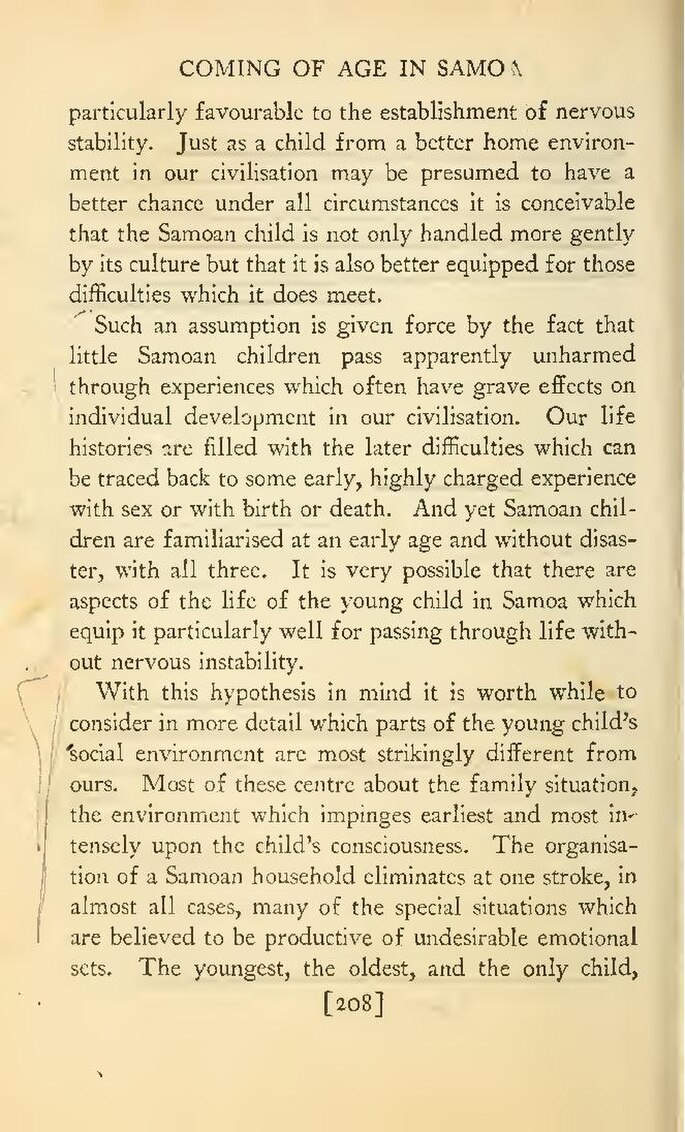Coming of Age in Samoa
particularly favourable to the establishment of nervous stability. Just as a child from a better home environment in our civilisation may be presumed to have a better chance under all circumstances it is conceivable that the Samoan child is not only handled more gently by its culture but that it is also better equipped for those difficulties which it does meet.
Such an assumption is given force by the fact that little Samoan children pass apparently unharmed through experiences which often have grave effects on individual development in our civilisation. Our life histories are filled with the later difficulties which can be traced back to some early, highly charged experience with sex or with birth or death. And yet Samoan children are familiarised at an early age and without disaster, with all three. It is very possible that there are aspects of the life of the young child in Samoa which equip it particularly well for passing through life without nervous instability.
With this hypothesis in mind it is worth while to consider in more detail which parts of the young child's social environment are most strikingly different from ours. Most of these centre about the family situation, the environment which impinges earliest and most intensely upon the child's consciousness. The organisation of a Samoan household climinates at one stroke, in almost all cases, many of the special situations which are believed to be productive of undesirable emotional sets. The youngest, the oldest, and the only child,
[208]
